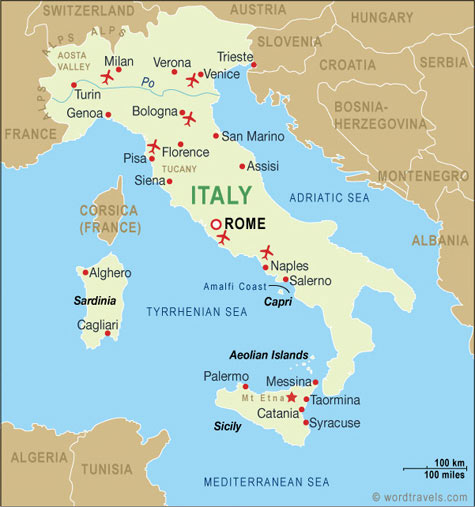Food security and price-stability set to top G8 agriculture talks
 Treviso, Italy - Food security and efforts to stabilize global food prices were set to dominate the first-ever meeting of agriculture ministers from the Group of Eight (G8) which began Saturday.
Treviso, Italy - Food security and efforts to stabilize global food prices were set to dominate the first-ever meeting of agriculture ministers from the Group of Eight (G8) which began Saturday.
But the potentially divisive issue of protectionism was also likely to crop up in the talks which are being held near the northeastern Italian city of Treviso and are scheduled to run until April 20.
Setting some of the tone on the topic on Saturday, was Italian Agriculture Minister Luca Zaia, whose country currently holds the G8 presidency.
Declaring himself a "believer in the (free) market," Zaia however added that "if the alternative is closing hundreds or thousands of farms, then I don't have doubts: I will fight to maintain (import) duties."
But speaking to reporters on Saturday ahead of the talks with his counterparts from the other G8 nations - US, Japan, Germany, France, Britain, Canada and Russia - Zaia confirmed that food security remained the main issue.
A policy document, prepared by the Italian presidency ahead of the talks calls for "immediate interventions" aimed at doubling by 2050 global agriculture production to ensure that the world's fast-growing population have enough to eat.
Zaia said provisions to boost food security would be contained in a final document prepared by the G8 agriculture ministers for the end of the three-day meeting.
However, with food security being about both "quantity and quality," Zaia said he intended to put forward Italy's case for the "defence of genuine products."
"Out of 10 food products in the world billed as Italian, only one actually comes from Italy," he said.
The need to fight counterfeit foods such as cheese "made in China but being sold as Italian mozzarella," was linked to ensuring health standards and should be of major international concern he added.
Zaia said the measures contained in the document would also be fruit of consultation with agriculture ministers from Brazil, China, India, Mexico, South Africa, Argentina, Australia and Egypt who have also been invited to attend several sessions of the meeting.
"I am confident the document we adopt here will be accepted by the G8 summit," Zaia said, referring to the main meeting of G8 government leaders scheduled for July.
G8 agriculture ministers also plan to look at ways to stabilize prices, especially in the wake of the sharp increase for commodities such as wheat and rice in 2008 - a situation that triggered riots in dozens of nations.
While prices have since fallen by as much as 40-50 per cent, they are still well above their pre-crisis levels with global cereal prices for example, still some 70 per cent higher than in 2005.
The price hike has had a major impact in pushing the number of the world's undernourished people to 963 million, as estimated by the United Nations Food and Agriculture Organization. (dpa)